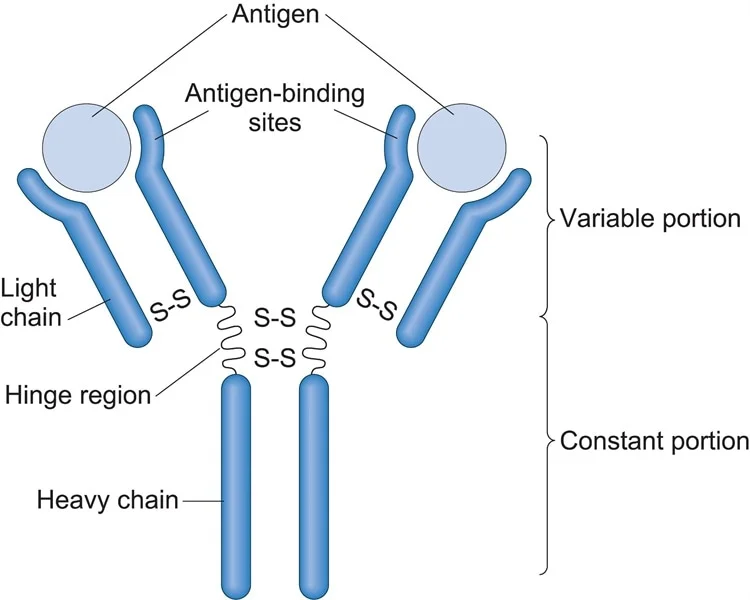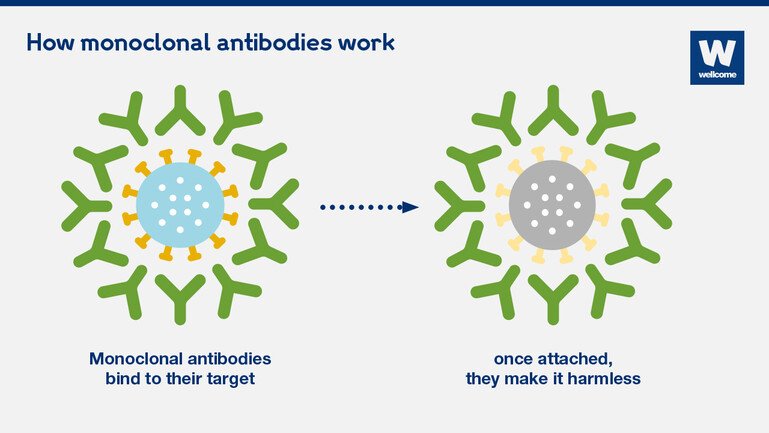Unveiling the Guardians of Immunity: Antibodies
In the intricate realm of immunology, antibodies stand as the stalwart defenders of our body against invading pathogens. These remarkable molecules, also known as immunoglobulins, play a pivotal role in recognizing, neutralizing, and eliminating harmful entities, thereby safeguarding our health.
Antibodies are specialized proteins produced by our immune system's B cells, a type of white blood cell. These proteins are uniquely designed to target specific antigens, which are usually proteins or other molecular structures on the surface of pathogens such as bacteria, viruses, fungi, and even abnormal cells like cancer cells. The immune system generates a diverse repertoire of antibodies to recognize an extensive range of antigens.
The basic structure of an antibody consists of four protein chains: two heavy chains and two light chains, linked together to form a Y-shaped molecule. The "arms" of the Y-shaped antibody contain regions called variable regions that possess binding sites. These variable regions are responsible for binding to antigens with high specificity. The rest of the antibody structure, the "stem" of the Y, interacts with other components of the immune system to initiate an immune response.


Source: News Medical Lifescience https://www.news-medical.net/life-sciences/The-Structure-of-an-Antibody.aspx
How do Antibodies Work?
Recognition: Antibodies serve as the immune system's reconnaissance agents, identifying antigens that may pose a threat to the body. When a pathogen enters the body, B cells undergo a process called somatic hypermutation, producing a diverse array of antibodies. These antibodies are tested against the antigens, and the B cells that generate antibodies with the highest affinity for the antigen are selected for further proliferation.
Neutralization: One of the primary functions of antibodies is to neutralize pathogens. Antibodies bind to the antigens on the surface of the pathogen, blocking its ability to infect host cells. This process prevents the pathogen from entering cells and replicating, effectively thwarting its harmful effects.
Opsonization: Antibodies mark pathogens for destruction by immune cells through a process called opsonization. When antibodies bind to the surface of a pathogen, they create binding sites for phagocytic cells, such as macrophages and neutrophils. These immune cells can then recognize and engulf the opsonized pathogen more efficiently.
Activation of Complement System: Antibodies can also activate the complement system, a group of proteins that work together to enhance immune responses. Complement activation leads to the recruitment of immune cells, inflammation, and the formation of membrane attack complexes that can destroy pathogens directly.
Adaptive Immune Memory: After the initial encounter with a pathogen, the immune system retains memory B cells that "remember" the specific antibodies produced against that pathogen. If the same pathogen reappears in the future, the immune response is much quicker and more robust, preventing reinfection.
Clinical Applications of Antibodies
The significance of antibodies extends beyond natural immune responses. Scientists have harnessed the power of antibodies for various therapeutic and diagnostic purposes:
Monoclonal Antibodies: These are laboratory-produced antibodies that are identical to the antibodies our immune system makes naturally. Monoclonal antibodies can be engineered to target specific antigens, making them valuable tools for treating conditions like cancer, autoimmune disorders, and infectious diseases.


Source: Credit: Wellcome https://wellcome.org/news/what-are-monoclonal-antibodies-can-they-treat-covid-19
Diagnostic Tests: Antibodies are crucial components of diagnostic tests, such as ELISA (Enzyme-Linked Immunosorbent Assay) and rapid antigen tests. These tests use antibodies to detect the presence of specific antigens, aiding in the diagnosis of various diseases.
Immunotherapy: Antibodies are used in immunotherapy to modulate immune responses. This approach has shown promise in treating cancer by enhancing the immune system's ability to target and destroy cancer cells.
Lastly, Antibodies are the unsung heroes of our immune system, working tirelessly to protect us from a myriad of threats. Their remarkable specificity, versatility, and various functional roles make them an essential component of our health. The scientific exploration of antibodies continues to yield breakthroughs in medicine, offering innovative ways to combat diseases and enhance the body's natural defenses. As we uncover more about these microscopic guardians, we inch closer to unlocking new frontiers in healthcare and immunology.


